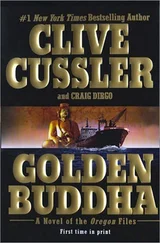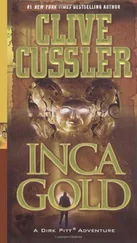
ACKNOWLEDGMENTS
We would like to thank the following people for graciously offering their expertise:
Yvonne Rodoni Bergero, Stanford Society, Archaeological Institute of America; Martin Burke; Christie B. Cochrell, exhibits manager, Stanford University Press; K. Kris Hirst, Archaeology Section, About.com.
Dr. Patrick Hunt, director of the Stanford Alpine Archaeology Project 1994-2009 & National Geographic Society Hannibal Expedition 2007-2008, Stanford University; Tom Iliffe, professor of Marine Biology, Texas A&M University; D. P. Lyle, M.D.; Katie McMahon, reference librarian, Newberry Library, Chicago; Connell Monette, assistant professor, Al Akhawayn University in Ifrane, Morocco; Eric Ross, associate professor, Al Akhawayn University in Ifrane, Morocco; Jo Stoop; Stephen Toms; Tim Vandergrift, Wine Writer and Technical Services Manager, Winexpert Ltd.
And last, but far, far from least: Janet, for her hints and insights.
PROLOGUE
GRAND ST. BERNARD PASS, PENNINE ALPS MAY 1800
Agust of wind whipped snow around the legs of the horse known as Styrie and he snorted nervously, sidestepping on the trail before the rider clicked his tongue a few times, calming him. Napoleon Bonaparte, Emperor of the French, pulled up the collar of his greatcoat and squinted his eyes against the sleet. To the east he could just make out the jagged sixteen-thousand-foot outline of Mont Blanc.
He leaned forward in his saddle and stroked Styrie’s neck. “You’ve seen worse, old friend.”
An Arabian Napoleon had captured during his Egyptian Campaign two years earlier, Styrie was a superb warhorse, but the cold and snow disagreed with his disposition. Born and bred in the desert, Styrie was accustomed to being peppered by sand, not ice.
Napoleon turned and signaled to his valet, Constant, who stood ten feet behind, holding a string of mules. And behind him, trailing for miles down the winding trail, were the forty thousand soldiers of Napoleon’s Reserve Army, along with their horses, mules, and caissons.
Constant untied the lead mule and hurried forward. Napoleon handed over Styrie’s reins, then dismounted and stretched his legs in the knee-deep snow.
“Let’s give him a rest,” Napoleon said. “I think that shoe is bothering him again.”
“I’ll see to it, General.” At home, Napoleon preferred the title of First Consul; while on campaign, General. He took in a lungful of air, settled his blue bicorne more firmly on his head, and gazed up the granite spires towering above them.
“Lovely day, isn’t it, Constant?”
“If you say so, General,” the valet grumbled.
Napoleon smiled to himself. Constant, who’d been with him for many years, was one of the few underlings he allowed a small measure of sarcasm. After all, he thought, Constant was an old man; the cold went right through his bones.
Napoleon Bonaparte was of medium height with a strong neck and broad shoulders. His aquiline nose sat above a firm mouth and a square chin, and his eyes were a piercing gray that seemed to dissect everything around him, human and otherwise.
“Any word from Laurent?” he asked Constant.
“No, General.”
Général de Division, or Major-General, Arnaud Laurent, one of Napoleon’s most trusted commanders and closest friends, had the day before led a squad of soldiers deeper into the pass on a scouting mission. However unlikely they were to encounter an enemy here, Napoleon had long ago learned to prepare for the impossible. Too many great men had been toppled by the mere act of assumption. Here, though, their worst enemies were the weather and terrain.
At eight thousand feet, the Grand St. Bernard Pass had for centuries been a crossroads for travelers. Straddling the borders of Swit zerland, Italy, and France, the pass’s home, the Pennine Alps, had seen its share of armies: the Gauls in 390 B.C., on their way to trample Rome; Hannibal’s famous elephant crossing in 217 B.C.; Charlemagne in A.D. 800, returning from his coronation in Rome as the first Holy Roman Emperor.
Laudable company, Napoleon thought to himself. Even one of his predecessors, Pepin the Short, king of France, had in 753 crossed the Pennines on his way to meet Pope Stephen II.
But where other kings have failed in greatness, I will not, Napoleon reminded himself. His empire would grow beyond the wildest dreams of those who’d come before him. Nothing would stand in his way. Not armies, not weather, not mountains—and certainly not some upstart Austrians.
A year earlier, while he and his army were conquering Egypt, the Austrians had brashly retaken the Italian territory annexed to France in the Campo Formio treaty. Their victory would be short-lived. They would neither expect an attack this early in the year, nor would they imagine any army attempting to cross the Pennines in winter. With good reason.
With its towering walls of rock and snaking gorges, the Pennines were a geographic nightmare for solitary travelers, let alone an army of forty thousand. Since September the pass had seen thirty feet of snow and temperatures that routinely dipped below zero. Drifts, standing as tall as ten men, loomed over them at every turn, threatening to bury them and their horses. Even on the sunniest of days fog cloaked the ground until midafternoon. Windstorms frequently arose without warning, turning a calm day into a howling nightmare of snow and ice that left them unable to see a yard in front of their feet. Most terrifying of all were the avalanches—cataracts of snow, sometimes a half mile wide, that roared down the mountainsides to entomb anyone unlucky enough to be in their way. So far God had seen fit to spare all but two hundred of Napoleon’s men.
He turned to Constant. “The quartermaster’s report?”
“Here, General.” The valet pulled a sheaf of papers from inside his coat and handed it to Napoleon, who scanned the figures. Truly, an army fought on its stomach. So far his men had consumed 19,817 bottles of wine, a ton of cheese, and 1,700 pounds of meat.
Ahead, down the pass, there came a shout from the outriders: “Laurent, Laurent . . . !”
“At last,” Napoleon murmured.
A group of twelve riders emerged from the blowing snow. They were strong soldiers, the best he had, just like their commander. Not a one rode hunched over, but all were erect, chins held high. Major-General Laurent trotted his horse to a stop before Napoleon, saluted, then dismounted. Napoleon embraced him, then stepped back and gestured to Constant, who hurried forward and handed Laurent a bottle of brandy. Laurent took a gulp, then another, then handed the bottle back.
Napoleon said, “Report, old friend.”
“We covered eight miles, sir. No sign of enemy forces. The weather improves at the lower elevations, as does the depth of the snow. It will only get easier from here.”
“Good . . . very good.”
“One note of interest,” Laurent said, placing his hand on Napoleon’s elbow and steering him a few feet away. “We found something, General.”
“And would you care to elaborate on the nature of this something?”
“It would be better if you saw it for yourself.”
Napoleon studied Laurent’s face; there was a glint of barely contained anticipation in his eyes. He’d known Laurent since they were both sixteen, serving as lieutenants in the La Fère Artillery. Laurent was prone to neither exaggeration nor excitability. Whatever he’d found, it was significant.
“How far?” Napoleon asked.
“Four hours’ ride.”
Napoleon scanned the sky. It was already midafternoon. Over the peaks he could see a line of dark clouds. A storm was coming. “Very well,” he said, clapping Laurent on the shoulder. “We’ll leave at first light.”
Читать дальше













